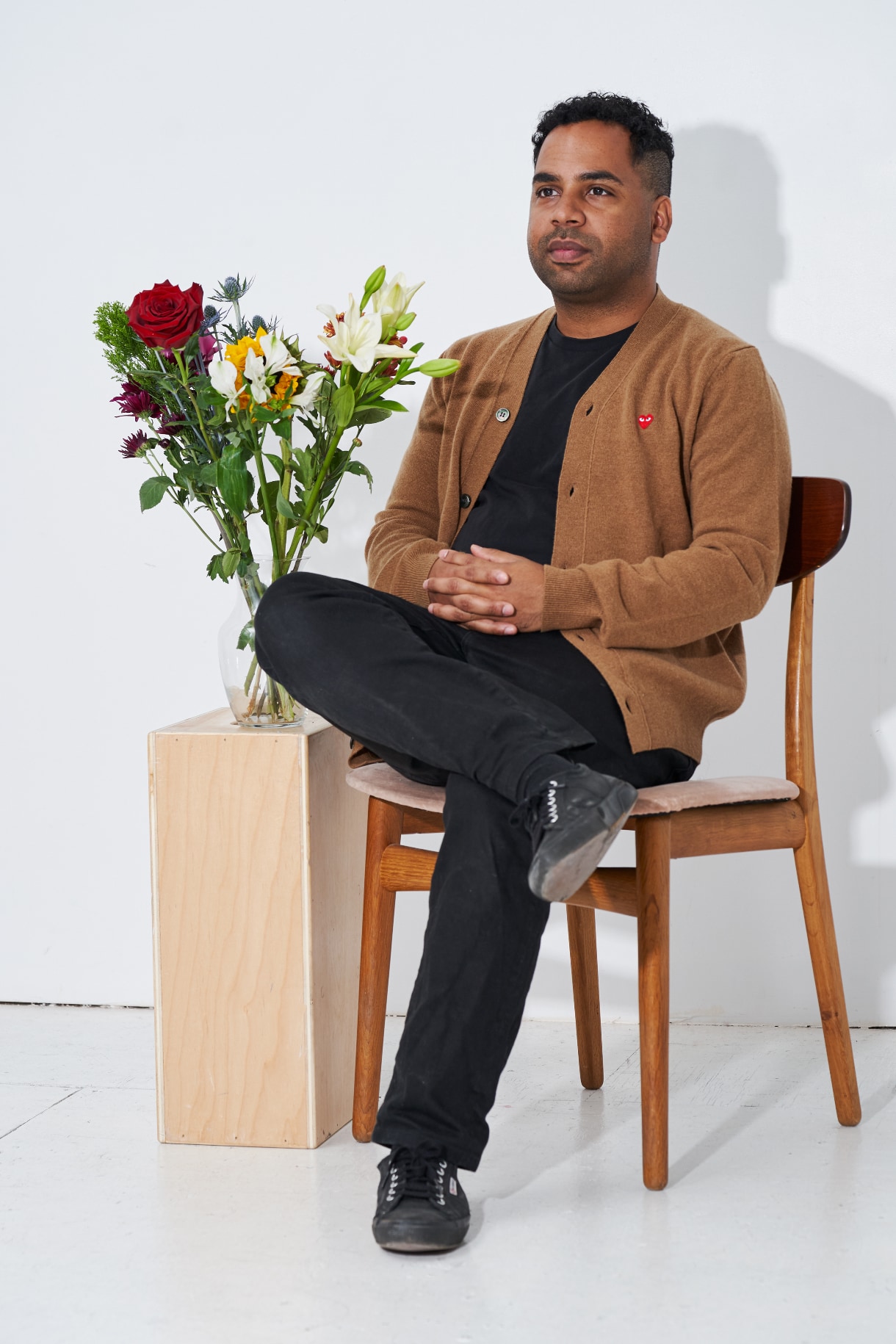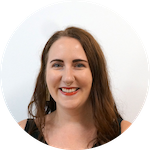Johann Diedrick: Web Developer to Director of Engineering and Artist
This is a continuation of our series exploring the paths that Recursers take to RC, what they do during their batch, and what happens after.
Johann is the Director of Engineering at Somewhere Good and maintains an art practice working at the intersection of art and technology. He came to RC in 2020. Before his batch, he worked as a web developer and attended ITP.

Here is Johann’s story:
Before RC
I got into programming through spending lots of time in AOL chat rooms when I was in middle school. People would make PROGz: these were chat room programs that allowed you to do different things by typing commands into the chat. I wanted to learn how to make one, so I made a music player using Visual Basic, and was able to get it to play music and shuffle through a playlist. My dad got me into electronics and computers generally speaking; he and I built computers, he built car stereo systems and all kinds of electronic projects, and that enmeshed me in electronic culture at the time. Being “born on the internet,” I’d do things like build and design websites and I didn’t think too much of it.
All of this felt like recreation, and not a career that I was going to pursue. I was more into science and biology, and I ended up getting into the University of Pennsylvania’s computational biology program which was my first introduction to programming in a formal setting. I ended up transferring out of engineering and into the college of arts and sciences. I was at a prestigious university and I thought I should be spending my time learning about ideas and thoughts and expressing myself, and figured I could always pursue a technical degree after I graduated.
I graduated and started working at an interactive media consultancy. I was a copywriter, and they found out that I knew how to code and make websites, and I fell into a junior web development role. At this point, I thought I should go back into engineering or pursue an arts practice that involved technology and music. I ended up at NYU’s ITP program, and it gave me a new way of inserting myself back into programming and computer science through a creative lens. I focused on programming while I was there, and even though it was like an MFA, I made sure to come out with strong programming experience, and tried to push myself as much as I could.
After ITP, I worked as a software engineer at the Metropolitan Museum of Art, and that felt like a progression of “working in the arts and programming”. Eventually, I didn’t feel satisfied; I felt stagnant in my career, skills, and things I wanted to pursue. I didn’t feel like I could jump jobs immediately because I didn’t have a CS degree; I could pass coding interviews, but not at the level of execution I wanted. I ended up applying for an artist residency at Pioneer Works, which prompted me to jump ship from the Met.
The residency was going to start in March of 2020, and I had three months beforehand to do whatever I wanted. I was talking with a friend about my plan to sit in my room for three months and read Cracking the Coding Interview, and he told me about the Recurse Center.
It seemed so curiosity driven: a perfect synergy of what I needed professionally and spiritually at the time. I was really excited to dive in, and I felt like I’d really found my people.
During RC
I was thinking about identity, race, power, and politics and what it means to show up in places. At the time, I was coming out of an unhealthy work environment that was making me feel very small, and when I got to RC, I remember I walked in on the first day and saw three masculine-presenting Black people in the room, and that was three more Black people than I ever saw in a room of programmers. I remember talking to one person and asking, “Is this real? Do you feel safe?” and they gave me an affirmative answer that felt very convincing.
Seeing the spectrum of identities at RC was really remarkable.
I wanted to spend my time at RC getting my CS fundamentals down, as well as at the intersection of art and programming. I was interested in audio machine learning, and doing lots of fun things with environmental sound classification, which led me to build a birdsong classifier. I went deep using a computing cluster at RC to do deep learning procedures. I met a crew of sound/music people and even went on a roadtrip to a conference with them. I was pretty heads-down while I was at RC - I had my head in the screen and had strong intentions about doing that, though I regret not socializing as much.
Everything was so well facilitated and managed, and I felt so supported. I did have some internal struggle thinking I could do more than I could in a day, and I had to learn what capacity is, what my capacity is, and to try not to burn myself out. I’m still learning that lesson! The batch transition was also hard for me - some people left whom I had gained familiarity with, and there was the feeling that there were “new kids”. The dynamic changed a lot in that moment. It does some nice things for you, though: having continuity across batches allows culture to persist and handing off of different clubs or activity groups or rituals is important.
After RC
I finished my batch at the beginning of the COVID-19 pandemic. I did my residency at Pioneer Works remotely for 3 months, and ended up working for Emergent Works, which was an education non-profit that worked with formerly incarcerated people to teach them to program and help them get engineering jobs. At the time, they’d started an agency side of the business where they’d have a senior engineer like me work with one of the junior engineers on client projects. It was really fulfilling.
I left that, and I was hired by a company called Somewhere Good, where I work as a Director of Engineering. It’s a social app where people can find different worlds around different interests and then have conversations inside of them via asynchronous voice notes. At RC, I got a lot better at programming. What it said on the tin was what I got. I started this job and I realized I was really good at it. I can do all of the things I’m asked to do and I want to do more.
I think RC was a huge reason for that. I felt like I got a lot better at programming, I got better at the fundamentals, and interviewing. I felt this new version of me as an engineer and programmer.
The art career is still going well - I’m not doing as much programming or audio classification but it’s flourished a lot. I also did some stuff with Mozilla last year around racial bias in speech recognition, and I feel like all of the audio machine learning stuff I did at RC came into play. A lot of fruit came out of all of the work I did at RC. It was very formative.
A dream of mine now is to build an education and art center somewhere; my partner and I have running notes on this, one of our models for this idea is an “Art Recurse.” I wonder what RC could be like for different creative practices? I think that there are lots of people who desire this kind of thing, but don’t know what it’s like or other spaces to do it outside of school.
